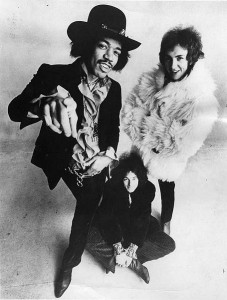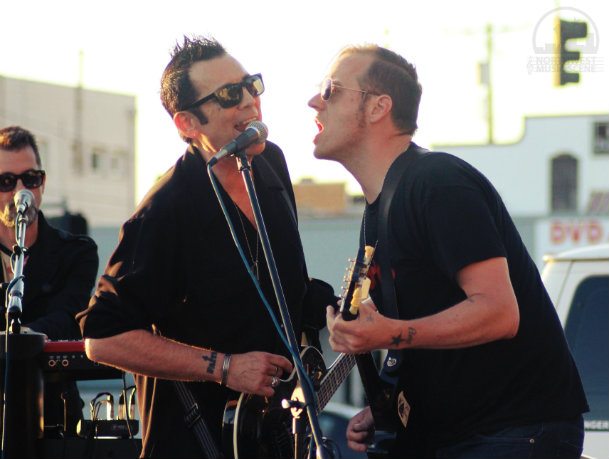 “It’s not the story people are expecting,” writer/director John Ridley, told a reporter for the Seattle Times recently, while explaining All Is By My Side, the new Jimi Hendrix biopic that opened the Seattle International Film Festival.
“It’s not the story people are expecting,” writer/director John Ridley, told a reporter for the Seattle Times recently, while explaining All Is By My Side, the new Jimi Hendrix biopic that opened the Seattle International Film Festival.
That’s a bit of an understatement, probably because people were expecting the truth. Instead, what they have been given is a fictional story based “loosely” on the life of one of the greatest musicians and shooting stars the world has ever known. The film is set in 1966 and 1967, when Jimi arrives in London and apparently “borrows” many scenes and events from Kathy Etchingham’s autobiographical book, Through Gypsy Eyes, and fictionalized them without her permission.
So far, no one has been able to get “The Jimi Hendrix” film done. And we say so far because this is a work of fiction. But in slight defense of the film, it is a biopic, which by definition says that it may contain fictional parts. That’s understandable. The whole premise of taking creative license is to liven things up and allow the narrative to fit the confines of film. That’s hardly anything new. But when you destroy someone’s character through a libelous and slanderous piece of cinematic garbage, you have traveled beyond creativity.
Charles Cross, the biographer of Room Full of Mirrors, about Jimi Hendrix of course, might know as much about our beloved Seattle hero as anyone alive. He did over three hundred interviews, 325 to be exact, with Jimi’s friends, family and band members.
Cross is a respected and award-winning biographer, having been presented the prestigious ASCAP Award for Outstanding Biography for his work on Heavier Than Heaven, the Kurt Cobain biography. If Jimi had been a woman beater as this film claims, it most certainly would have came to light while Cross’ biography was being written. And Cross would have most certainly mentioned the glaring detail. During the four years that he had to create the book, he had total access to Hendrix’s family, friends, girlfriends, and band members. and there was never a mention of domestic violence on Jimi’s part. “In interviewing over 300 people for my book, I never heard a story that is even close to that,” says Cross about the movie’s events.
In a recent interview for Kiro Radio in Seattle, Cross was asked what he thought of the film, where he bluntly replied “I Hated It.”
He hated it because parts of the film portray Jimi Hendrix in an unfair negative light. In fact, one of the scenes of the movie shows Hendrix ripping a phone from the hands of long-time girlfriend Kathy Etchingham and beating her severely with it. Cross continues, “The most shocking thing is Jimi is shown beating a woman twice. That woman is named Kathy Etchingham, who was Jimi’s longtime girlfriend from London. He was with her for three years. She says that no domestic violence like that ever happened,” says Cross.
From Charles Cross’s Facebook page:
Back in September 2013, Etchingham, whose middle name is Mary and was the inspiration behind Hendrix’s famed “The Wind Cries Mary”, spoke to the UK’s Sunday Express about the film and Hendrix’s portrayal in it. “A lot of people will go and see it who have never read any of the biographies and they will think it’s gospel truth, I don’t want it to fundamentally change history.” warns Etchingham.
She went on to criticize those behind the film for failing to take her input into account. “I wrote them an email when I first heard about it saying if you want any help, don’t hesitate to contact me,” she said. “They didn’t reply.”
Etchingham was the iconic sixties guitarist’s common-law wife throughout virtually all of his years of stardom and she has endeavored always to preserve the integrity of Hendrix’s reputation and musical legacy. In 1997, she organized the unveiling of an English Heritage plaque to mark the location of one of her and Hendrix’s London homes.
In a letter to Kiro’s Rachel Belle, Etchingham calls Ridley’s film “a complete travesty and totally defamatory.” She continues, “I have been told that it looks as if John Ridley has taken scenes and events from my autobiographical book Through Gypsy Eyes and fictionalized them without permission. He then claims that his version is the ‘true story’. His behavior has been completely unethical.
“Neither he or the actor playing me have contacted me or interviewed me to find out about how things were like for us in London during that year [1966]. Of course Jimi did not abuse me. The very idea is absurd.”
“What annoys me is that Jimi is portrayed as some sort of inarticulate simpleton who needed guidance from Linda Keith, a teenage model, whereas he was already an experienced (pardon the pun) performer who had already developed his style touring in the USA. He was so good that Little Richard fired him for upstaging him. I am portrayed as a drug-addled naive groupie whereas, although I was only twenty years old, I had been living in London for four years and worked as DJ at the Cromwellian and Scotch clubs and was well known in the music scene at the time.”


